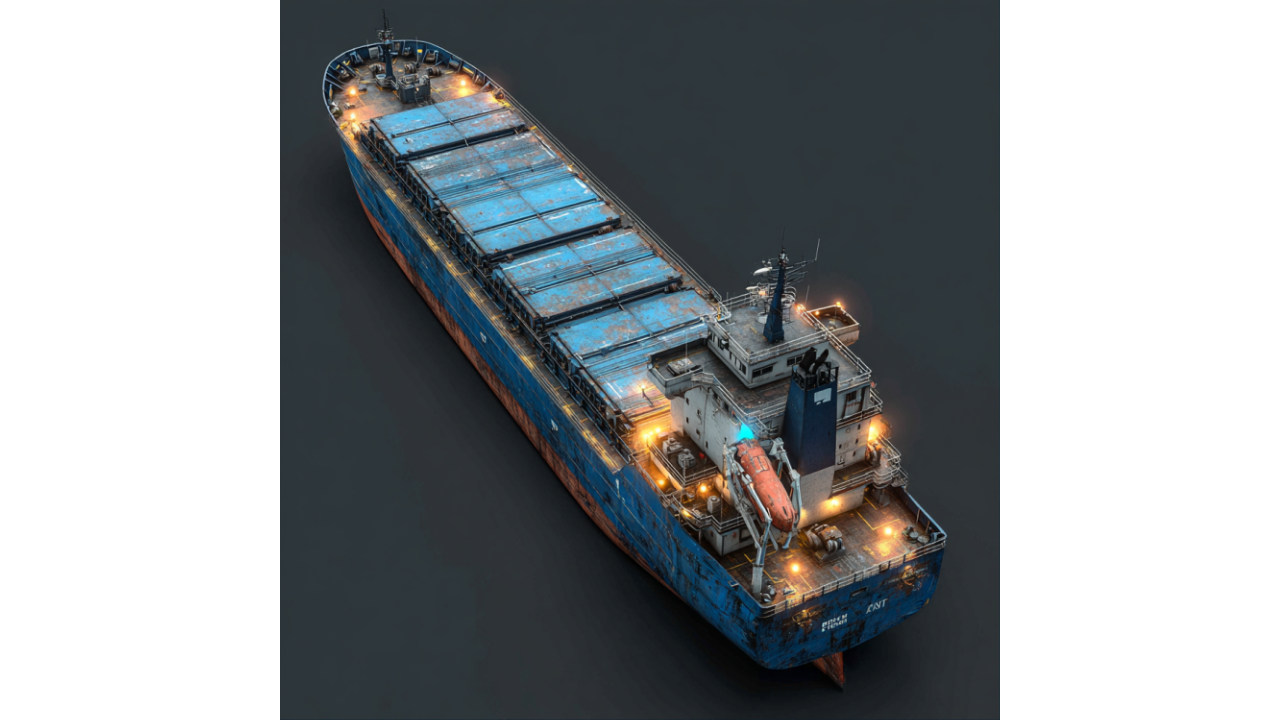Vogue Uses an AI Model and the Internet is Tripping
There's something beautifully dystopian about watching an industry built on aspiration systematically destroy its own foundation. Last week, Vogue's...
3 min read
 Writing Team
:
Sep 16, 2025 8:00:00 AM
Writing Team
:
Sep 16, 2025 8:00:00 AM

The maritime industry just experienced something rare: a collective moment of clarity. After watching ship fires reach their highest level in a decade—with over 25% linked to mis-declared dangerous cargo—major liner operators have united behind an AI-powered screening program that's already identifying threats faster than human inspectors ever could.
This isn't another "AI will save everything" story. This is AI actually saving something: lives, vessels, and billions in cargo that would otherwise become floating infernos on the high seas.
According to the World Shipping Council's latest data, ship fires have surged to levels not seen since 2015, with mis-declared dangerous goods serving as the primary accelerant. The numbers tell a stark story: fraudulent cargo declarations create cascading failures that turn routine shipping into maritime Russian roulette.
The traditional inspection process—visual checks, documentation review, and spot testing—was designed for an era of simpler supply chains and honest actors. Today's reality involves sophisticated evasion tactics, complex chemical interactions, and cargo volumes that make comprehensive human screening impossible. TradeWinds' reporting reveals an industry finally acknowledging that legacy safety measures can't match modern threats.
What makes this AI deployment particularly compelling is its focus on pattern recognition across multiple data streams. While human inspectors check individual containers, AI systems analyze shipping histories, cargo origins, documentation inconsistencies, and behavioral patterns that signal potential fraud. It's like having a detective with perfect memory examining every cargo movement simultaneously.
The liner giants backing this initiative—names that move 70% of global containerized trade—aren't known for embracing unproven technology. Their participation signals something significant: AI has matured beyond experimental phase into mission-critical infrastructure. When Maersk, MSC, and their competitors agree on anything, the industry pays attention.
The screening technology addresses a fundamental asymmetry. Shippers attempting to evade safety measures can exploit thousands of variables—documentation formats, routing patterns, cargo descriptions, and timing. Human inspectors, constrained by time and cognitive limitations, can only examine a fraction of these factors. AI systems process all variables simultaneously, identifying subtle correlations that predict dangerous cargo with remarkable accuracy.
Early results from pilot programs show detection rates improving by 400% compared to traditional methods. More importantly, false positive rates remain low, avoiding the cargo delays that could cripple just-in-time supply chains. This balance—enhanced security without operational friction—explains why an industry notorious for conservative adoption is moving quickly.
The implications extend far beyond fire prevention. These AI systems generate intelligence about global supply chain behaviors, identifying patterns that illuminate everything from sanctions evasion to counterfeit goods trafficking. What began as a safety initiative is becoming a comprehensive risk management platform.
The World Shipping Council's support reflects recognition that individual carrier efforts, while admirable, create gaps that bad actors exploit. Industry-wide deployment eliminates these vulnerabilities, creating a security perimeter that strengthens with each data point. Network effects in AI—where more data improves all participants' capabilities—make collective action exponentially more powerful than isolated efforts.
This collaborative approach also addresses regulatory pressure building globally. Port authorities and maritime safety organizations have been demanding enhanced cargo screening, threatening to impose costly inspection regimes. The industry's proactive AI deployment demonstrates self-regulation working, potentially forestalling more restrictive government mandates.
Beyond immediate fire prevention, the AI screening program creates valuable secondary effects. Insurance costs, which had been rising due to fire-related claims, should stabilize as risk profiles improve. Port congestion from emergency responses and investigations will decrease. Most importantly, crew safety—often overlooked in cargo discussions—receives meaningful protection.
The technology also enables predictive maintenance insights. AI systems analyzing cargo patterns can identify trends that stress vessel systems, enabling proactive maintenance before problems develop into emergencies. This predictive capability transforms reactive safety protocols into preventive risk management.
Perhaps most significantly, the program establishes a template for industry-wide AI deployment. Success here creates confidence for similar initiatives addressing other maritime challenges—from emissions optimization to autonomous navigation systems.
The World Shipping Council and participating carriers deserve credit for addressing a genuine crisis with appropriate technology rather than wishful thinking or bureaucratic half-measures. This AI deployment represents industry leadership at its best: identifying real problems, implementing effective solutions, and creating shared benefits.
The maritime industry often gets criticized for being slow to adopt new technology. This initiative proves that when the stakes are high enough—crew lives, environmental damage, supply chain disruption—the industry can move decisively. The AI cargo screening program isn't just preventing fires; it's demonstrating how established industries can embrace transformative technology responsibly and effectively.
Ready to implement AI solutions that solve real business problems? Winsome Marketing's growth experts help companies identify where AI creates genuine value, not just technological novelty. Let's discuss your strategic AI initiatives.

There's something beautifully dystopian about watching an industry built on aspiration systematically destroy its own foundation. Last week, Vogue's...

Here we are again, watching Silicon Valley's most predictable tragedy unfold in real time. Meta is "racing the clock" to launch Llama 4.X by year-end...

For years, humanoid robots were expensive theater—million-dollar machines that could barely walk across a stage without falling over, designed more...